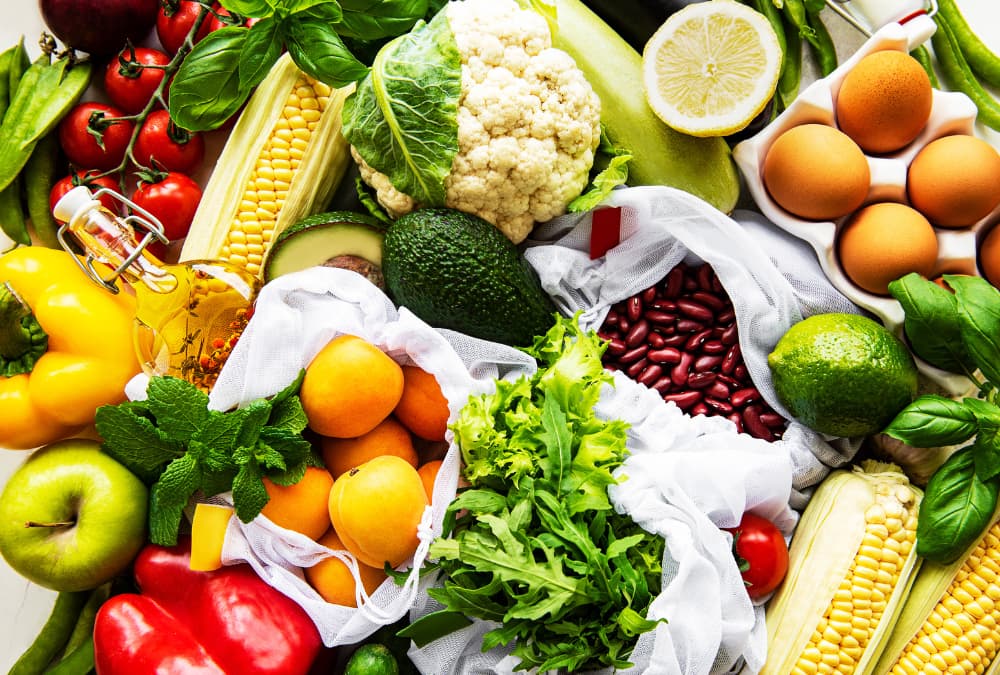Atlante
News
The Italy 2023 case: food waste decreases by 12%

24 May 2023
Food waste is a complex phenomenon involving producers, distributors and consumers. According to the latest survey conducted by Waste Watcher , most waste (53%) occurs at home: the foods that Italians throw away the most are fruit, vegetables, bread and pasta, followed by meat and fish.
The study reveals that the cost of food waste in Italy in 2023 reached €9 billion. These figures confirm that Italy is still far from the goal of reducing food waste by 50% by 2030, as set out in the UN’s 2030 Agenda for Sustainable Development. However, the Waste Watcher report also offers an interesting fact: compared to 2021, food waste has decreased by 12%. This bodes well for the future of our country – and the planet.
Choosing a plant-based diet around fruit, vegetables, pulses, whole grains, and seeds undoubtedly contributes to reducing food waste.
Producing plant-based foods, in fact, requires fewer resources than animal-based
foods, and they can be stored for limiting waste.
Furthermore, a plant-based approach encourages the choice of local and seasonal products, reducing the demand for imported or out-of-season products, which have a greater ecological impact. Therefore, an animal protein free diet can be an effective tool in the fight against food waste, aligning with the sustainability goals of the 2030 Agenda.
What we can do to reduce food waste
Let’s briefly look at the ideas the report suggests in order to tackle the problem, help improve consumer awareness, and promote a more careful use of food resources.
- Responsible consumption education: promote awareness and training campaigns to encourage greater attention to food management and waste reduction. This may include information on expiry dates, the importance of proper storage, and making the most of leftovers.
- Reducing portions: particularly in the catering sector, waste can be reduced by offering portions that are more suited to the needs of individual customers, and by adopting menus based on local and seasonal ingredients, which make it possible to limit waste and support food recovery and redistribution initiatives.
- Innovation and technology: harness the potential of new technologies to optimise food supply chain management and reduce food waste. For example, digital applications and platforms can facilitate information sharing between stakeholders, promote the adoption of sustainable packaging solutions, and support consumers with the management of food purchases and stocks.
- Involvement of institutions and public policy: call for legislative measures and economic incentives to promote an effective fight against food waste at all levels. This may include promoting sustainable production and distribution standards, introducing reward and penalty mechanisms for companies, and creating monitoring and control systems.
In conclusion, the Waste Watcher survey highlights a very significant problem in Italy, but also offers important pointers for tackling it successfully. Reducing food waste is a fundamental objective, not only for the economic and social well-being of our country, but also for environmental sustainability and the fight against climate change.
Atlante is strongly committed to the fight against waste: in fact, since 2013 there is an ongoing collaboration with the Banco Alimentare, a foundation that supports charitable organizations by redistributing meals. Food surpluses made up of safe and good products but which cannot be placed on the market for reasons related to shelf life are periodically sent to Banco Emilia Romagna, which serves 750 structures thus supporting over 125,000 people in the region.
In addition, Atlante employees participate annually in the famous Colletta Alimentare and during 2022 corporate volunteering days were organized at the Banco Alimentare.





